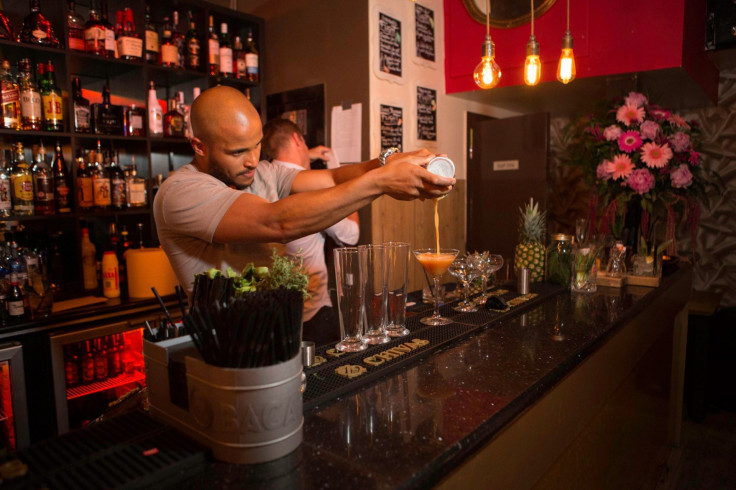Sussex bar owner installs Faraday cage to block mobile signals and force customers to socialise
The Gin Tub wants customers to stop using their devices and talk to each other.

The owner of the cocktail bar in Sussex has taken the unusual step of installing a Faraday cage in his venue in order to block all electromagnetic mobile phone signals so that customers will start socialising with each other again instead of being glued to their devices.
Steve Tyler, owner of The Gin Tub in Howe, East Sussex has installed metal mesh in the walls and ceiling of the cocktail bar, inspired by English scientist Michael Faraday's 1836 invention, because he believes that social media and mobile devices are ruining the British pub and nightlife culture.
A Faraday cage is created by a phenomenon whereby an external electrical field causes the electric charges within the conductive material to be distributed in such a way that they completely cancel out the electrical field's effects on the interior of the cage.
The invention is usually used to protect sensitive electronic equipment from external radio frequency interference (RFI) or to protect people from electrical currents like lightning strikes, as well as to keep devices that produce radio waves from getting in the way of other equipment. So what would be better for a venue owner that is sick of the internet revolution?
People have stopped socialising in public
"If the person you are with goes to the bathroom, the problem with mobiles is they insulate you from talking to other people. I want you to enjoy the experience of going out," Tyler told BBC News.
"I had quite a lot of copper mesh and thought, 'I could put this in the ceiling.' I was mucking about with it to see if it would block a signal, and it does when you put your phone in it."
The Gin Tub has so far been open for a week with the new policy in place and Tyler says that it is working. People are starting to socialise with those they come into the bar with, rather than messaging people who are not there with them. And when it comes to emergencies, Tyler keeps a landline phone ready that customers are allowed to use.
"It's the same as the London Underground – that's no more dangerous than my bar. The response I've had is overwhelming. People enjoy the fact they can only take pictures and then go outside to log on or check in," he said.
"I've had one complaint from a customer, and it was that she got a signal. We moved her to another table."
No Wi-Fi. Talk to each other
The rise in mobile devices has seen many venues, especially cafes and restaurants, seek to offer free Wi-Fi hotspots in order to please customers so that they frequent the eatery more often and spend more time in the venue, meaning that they will potentially spend more money.
However, increasing customer demand for Wi-Fi has also seen some café and bar owners respond by putting up signs on sandwich boards saying, "No Wi-Fi. Talk to each other," in protest of the new trend.
The café owners' distaste for mobile devices shows that they might well be in favour of the traditional notion of the "Bourgeois public sphere", a notion articulated by German sociologist Jürgen Habermas whereby people, sometimes complete strangers, would meet in coffee houses and cafes since the eighteenth and early nineteenth century to debate and reflect on society and politics.
© Copyright IBTimes 2024. All rights reserved.






